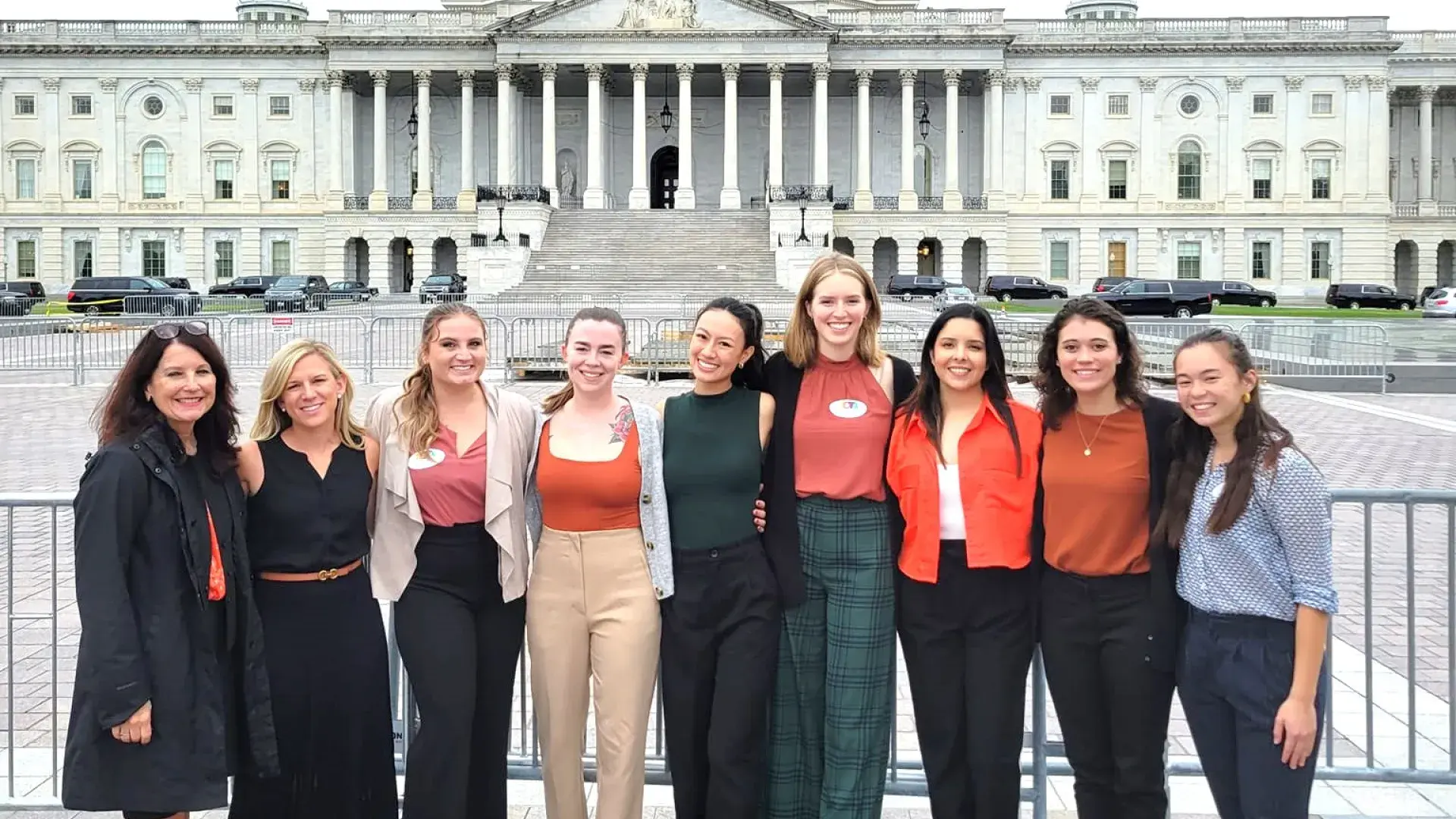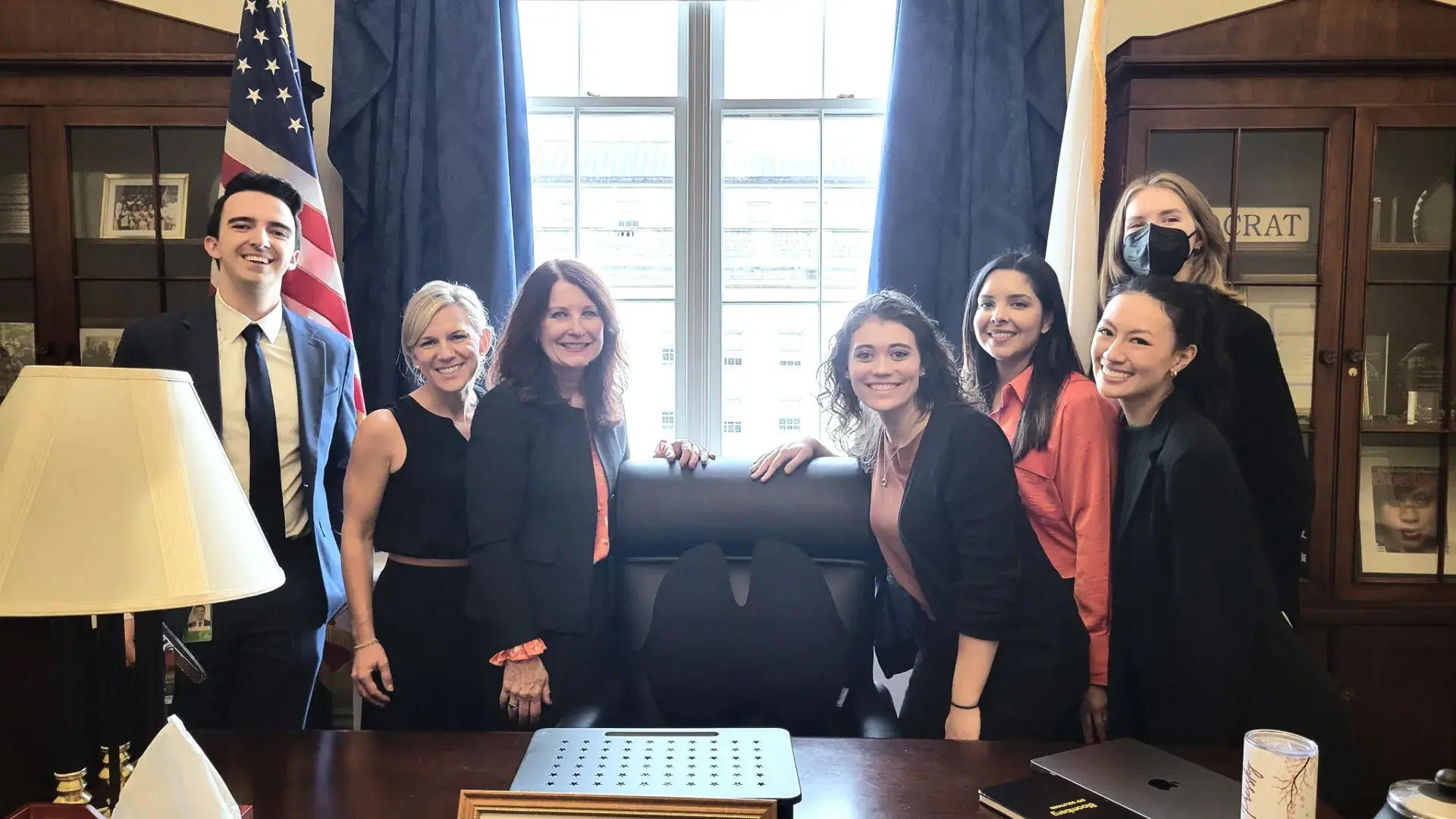
Students and faculty members from the Department of Occupational Therapy joined more than 300 peers who lobbied during AOTA Hill Day to pass bills that can improve healthcare for millions of Americans
Little did Jillian Salis know that lobbying members of Congress would be among the skills learned as an entry-level Doctor of Occupational Therapy student at the MGH Institute.
Salis, who is in her second year of the three-year program, was part of a contingent of 10 OTD students and two faculty members who recently traveled to Washington, D.C, to participate in the annual American Occupational Therapy Association (AOTA) Hill Day.
She was among the more than 300 OT practitioners, faculty, and students from around the country who were advocating for healthcare legislation that promises to improve patient care and could save upwards of $242 million over a ten-year period.
Some of the IHP cohort met with staffers of Senators Edward Markey and Elizabeth Warren, and Representatives Ayanna Pressley and Stephen Lynch, all of whom represent Massachusetts in Congress.
“Actively participating allowed me to see how much of an impact that I, as an OT student, can have on legislation and policy,” said Salis, an Ohio native who also found time to speak with staffers of legislators from her home state. “Advocacy work is hard work, but it is of the utmost importance for our clients and our profession.”

